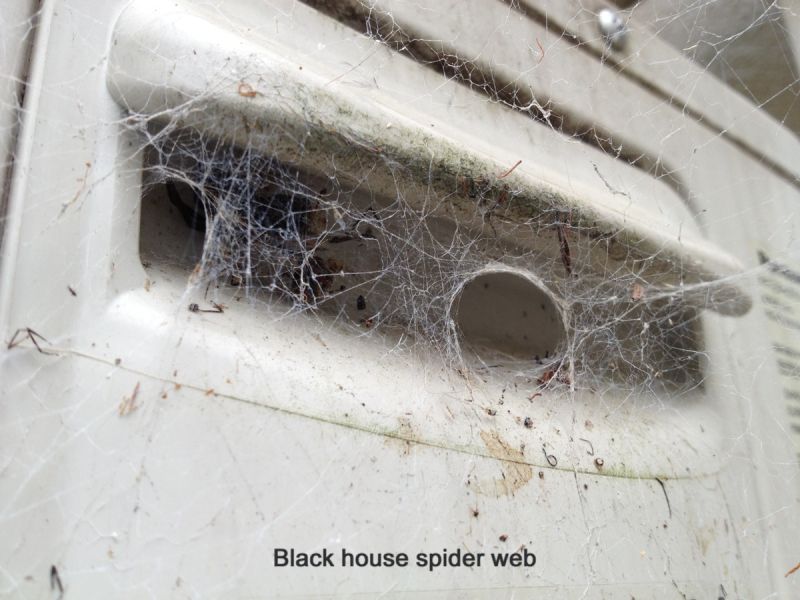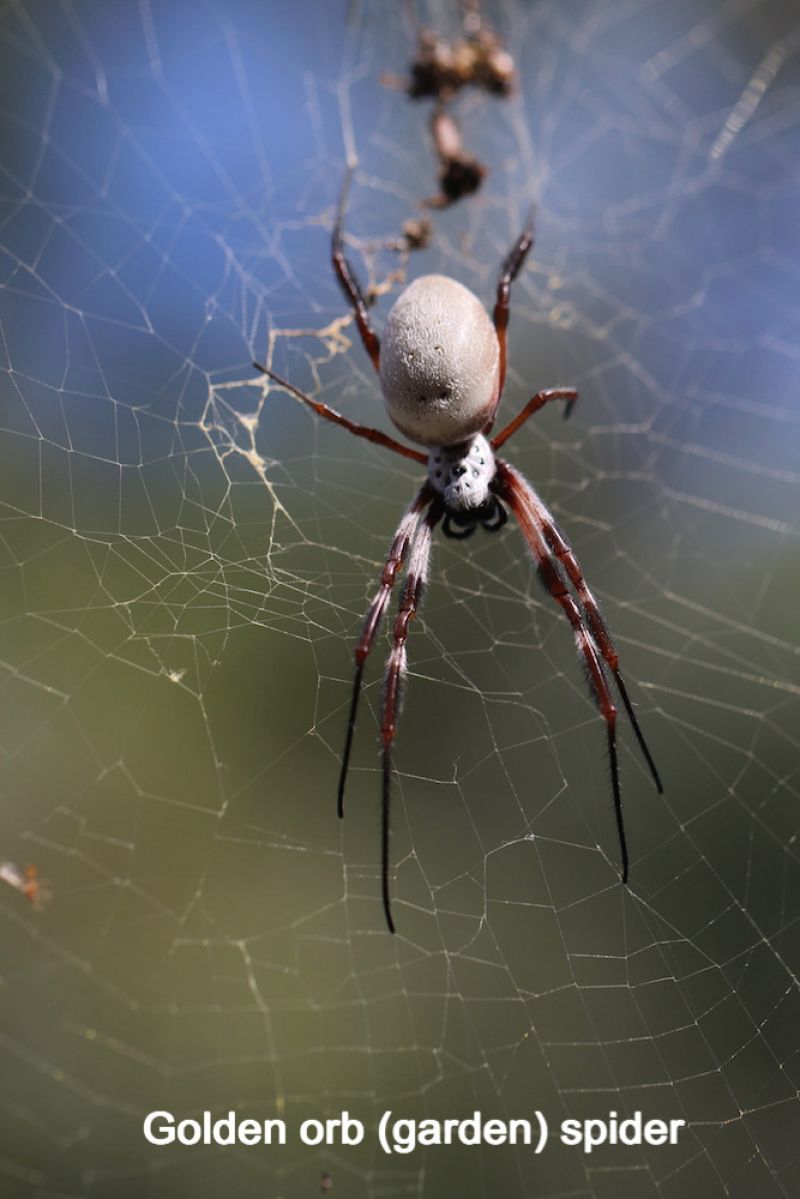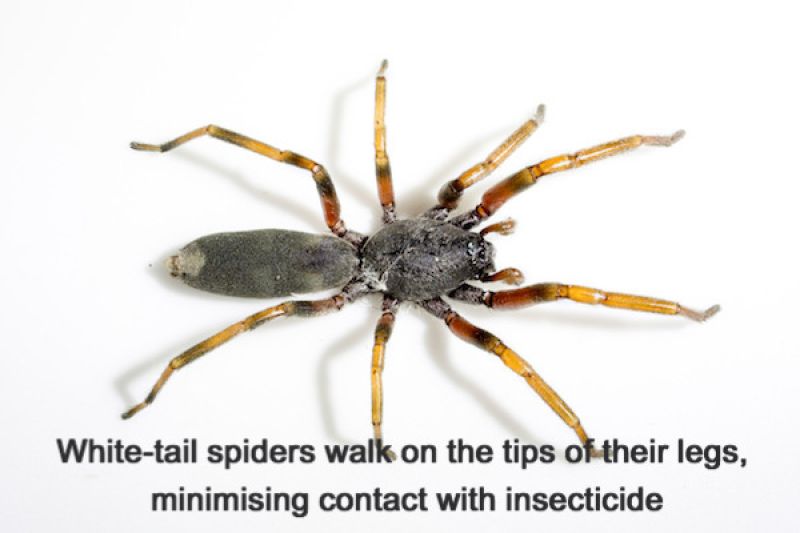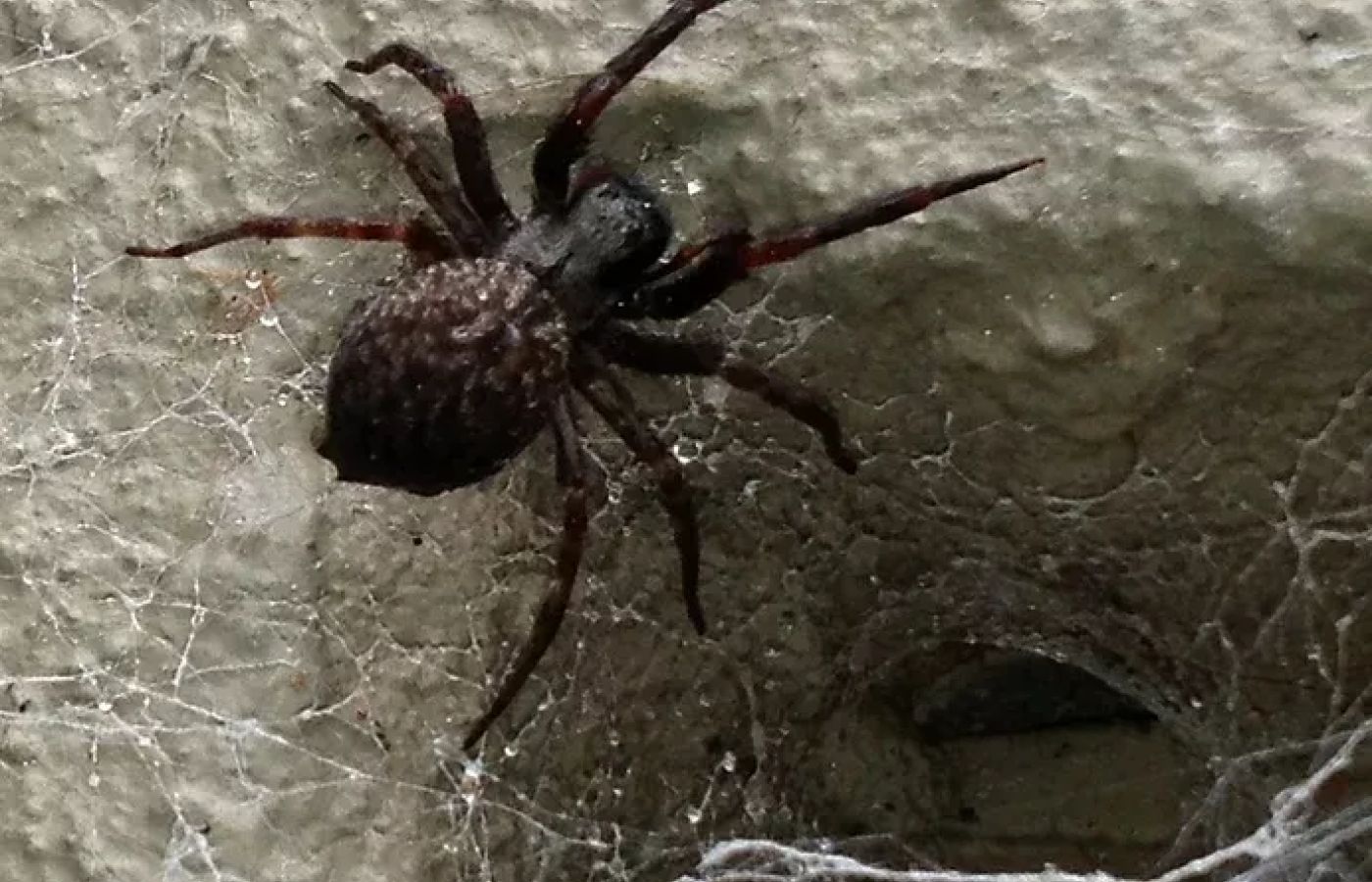
To most people, especially arachnophobes, a spider is a spider – you want them gone! However, to a pest manager, it’s important to know the type of spider causing the problem, as it impacts the choice of treatment and the chances of success. So for a homeowner requesting a spider treatment, it’s important to choose a pest manager who knows a thing or two about spiders.
Broadly speaking, there are two types of spiders: web-building spiders and non-web-building spiders, which are also called hunting, ground, or running spiders.
Web-building spiders
As their name suggests, web-building spiders spin webs to catch their food. The common web-building spiders found around the home include the redback and black house spiders, as well as the various garden spiders, such as the orb spiders.
Both redbacks and black house spiders can give nasty bites, so there are good reasons to get rid of them, but they also build very messy webs which can be unsightly. Black house spiders build their dense webs around windows, doors and under eaves. Redback webs are less well defined and often contain debris such as dried leaves and will be built in dry areas – around vents, fences and in roof voids, often around downlights.

Although garden spiders are generally viewed as beneficial (as they get rid of other garden pests), their size can make them a bit scary, and their large webs built across paths can catch humans as well as insects!
Running or hunting spiders
Non-web-building spiders are ground spiders that don’t need a web to catch their prey. They actively hunt their prey by running after them or catching them through an ambush. The most common ground spiders of concern to homeowners are white-tail spiders and huntsman, but wolf spiders are also commonly encountered.
Typically, these spiders live outside and come inside by accident, trying to escape the heat or looking for prey.
One of the key behavioural features of these hunting spiders is that they are fast-moving and walk on the tips of their legs. This is important when considering treatments and control methods.

Spider treatments
Web building spiders
Treatment for web-building spiders is fairly straightforward. Their hiding spots can be easily identified (there will be a web nearby) and can be treated along with similar potential hiding spots.
A comprehensive spider treatment for web-building spiders will treat all these hiding spots and any visible webs, as well as treating exterior surfaces – around windows, doors, vents and weep holes, and under eaves – with a long-lasting insecticide. The treatment will kill any spiders present and the long-lasting residual effect will control any spiders moving into the area, thus preventing the building of new webs.
After a treatment, it is important to leave the webs in place for a few days, just in case the owner of the web did not come into contact with the initial treatment. When the spider comes out onto the web, it picks up the insecticide from the web and dies.
When you are ready to remove the webs, simply brush them down. DON’T wash the webs away with a hose, as the water will also wash away the treatment, reducing the duration of protection.
Treatment for running or hunting spiders is more of a challenge.
The trouble with hunting spiders…
As hunting spiders run on the tips of their legs, they will often walk over a treated surface and pick up very little insecticide. No matter what a pest manager tells you, there is no treatment that will guarantee 100% protection from running spiders.
But we have a few tricks up our sleeve to get pretty close…
Hunting spiders are generally only hanging around your house because there’s plenty of food (prey). If you carry out a pest treatment to eliminate insects and web-building spiders, you remove the prey for hunting spiders. Indeed, black house spiders are actually a favourite prey for white-tail spiders.
Our spider treatments ensure a comprehensive exterior treatment to eliminate insects and web-building spiders and we spray a wide band of insecticide – a metre up the wall and a metre out from the wall – to eliminate prey for hunting spiders and maximise the chance of controlling any spider that walks across the surface.
It is perfectly normal to get one or two hunting spiders in the home over the course of a year, but having several over the course of a few weeks suggests a more specific problem. If you have an “infestation” of white-tail or huntsman spiders, a more in-depth inspection is often required to try and find the source of the problem. In such circumstances, we would also carry out a specific spot treatment.
As always knowledge and expertise are the foundation for the best results. When it comes to protecting your family and pets from spiders, it’s also important we live up to our name – for expert spider control call Spiderman SE.

